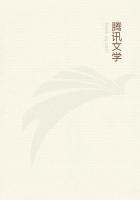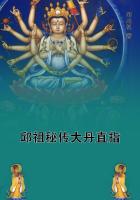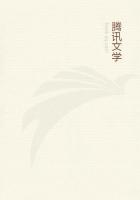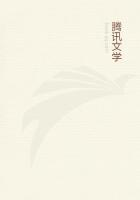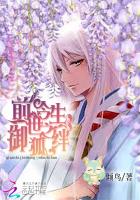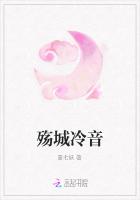The Dyaks of Sarawak believed that their famous English ruler, Rajah Brooke, was endowed with a certain magical virtue which, if properly applied, could render the rice-crops abundant. Hence when he visited a tribe, they used to bring him the seed which they intended to sow next year, and he fertilised it by shaking over it the women's necklaces, which had been previously dipped in a special mixture. And when he entered a village, the women would wash and bathe his feet, first with water, and then with the milk of a young coco-nut, and lastly with water again, and all this water which had touched his person they preserved for the purpose of distributing it on their farms, believing that it ensured an abundant harvest. Tribes which were too far off for him to visit used to send him a small piece of white cloth and a little gold or silver, and when these things had been impregnated by his generative virtue they buried them in their fields, and confidently expected a heavy crop. Once when a European remarked that the rice-crops of the Samban tribe were thin, the chief immediately replied that they could not be otherwise, since Rajah Brooke had never visited them, and he begged that Mr. Brooke might be induced to visit his tribe and remove the sterility of their land.
The belief that kings possess magical or supernatural powers by virtue of which they can fertilise the earth and confer other benefits on their subjects would seem to have been shared by the ancestors of all the Aryan races from India to Ireland, and it has left clear traces of itself in our own country down to modern times. Thus the ancient Hindoo law-book called The Laws of Manu describes as follows the effects of a good king's reign: In that country where the king avoids taking the property of mortal sinners, men are born in due time and are long-lived. And the crops of the husbandmen spring up, each as it was sown, and the children die not, and no misshaped offspring is born. In Homeric Greece kings and chiefs were spoken of as sacred or divine; their houses, too, were divine and their chariots sacred; and it was thought that the reign of a good king caused the black earth to bring forth wheat and barley, the trees to be loaded with fruit, the flocks to multiply, and the sea to yield fish. In the Middle Ages, when Waldemar I., King of Denmark, travelled in Germany, mothers brought their infants and husbandmen their seed for him to lay his hands on, thinking that children would both thrive the better for the royal touch, and for a like reason farmers asked him to throw the seed for them. It was the belief of the ancient Irish that when their kings observed the customs of their ancestors, the seasons were mild, the crops plentiful, the cattle fruitful, the waters abounded with fish, and the fruit trees had to be propped up on account of the weight of their produce. A canon attributed to St. Patrick enumerates among the blessings that attend the reign of a just king fine weather, calm seas, crops abundant, and trees laden with fruit. On the other hand, dearth, dryness of cows, blight of fruit, and scarcity of corn were regarded as infallible proofs that the reigning king was bad.
Perhaps the last relic of such superstitions which lingered about our English kings was the notion that they could heal scrofula by their touch. The disease was accordingly known as the King's Evil. Queen Elizabeth often exercised this miraculous gift of healing. On Midsummer Day 1633, Charles the First cured a hundred patients at one swoop in the chapel royal at Holyrood.
But it was under his son Charles the Second that the practice seems to have attained its highest vogue. It is said that in the course of his reign Charles the Second touched near a hundred thousand persons for scrofula. The press to get near him was sometimes terrific. On one occasion six or seven of those who came to be healed were trampled to death. The cool-headed William the Third contemptuously refused to lend himself to the hocuspocus; and when his palace was besieged by the usual unsavoury crowd, he ordered them to be turned away with a dole. On the only occasion when he was importuned into laying his hand on a patient, he said to him, God give you better health and more sense.
However, the practice was continued, as might have been expected, by the dull bigot James the Second and his dull daughter Queen Anne.
The kings of France also claimed to possess the same gift of healing by touch, which they are said to have derived from Clovis or from St. Louis, while our English kings inherited it from Edward the Confessor. Similarly the savage chiefs of Tonga were believed to heal scrofula and cases of indurated liver by the touch of their feet; and the cure was strictly homoeopathic, for the disease as well as the cure was thought to be caused by contact with the royal person or with anything that belonged to it.
On the whole, then, we seem to be justified in inferring that in many parts of the world the king is the lineal successor of the old magician or medicine-man. When once a special class of sorcerers has been segregated from the community and entrusted by it with the discharge of duties on which the public safety and welfare are believed to depend, these men gradually rise to wealth and power, till their leaders blossom out into sacred kings. But the great social revolution which thus begins with democracy and ends in despotism is attended by an intellectual revolution which affects both the conception and the functions of royalty. For as time goes on, the fallacy of magic becomes more and more apparent to the acuter minds and is slowly displaced by religion; in other words, the magician gives way to the priest, who, renouncing the attempt to control directly the processes of nature for the good of man, seeks to attain the same end indirectly by appealing to the gods to do for him what he no longer fancies he can do for himself. Hence the king, starting as a magician, tends gradually to exchange the practice of magic for the priestly functions of prayer and sacrifice. And while the distinction between the human and the divine is still imperfectly drawn, it is often imagined that men may themselves attain to godhead, not merely after their death, but in their lifetime, through the temporary or permanent possession of their whole nature by a great and powerful spirit. No class of the community has benefited so much as kings by this belief in the possible incarnation of a god in human form. The doctrine of that incarnation, and with it the theory of the divinity of kings in the strict sense of the word, will form the subject of the following chapter.

